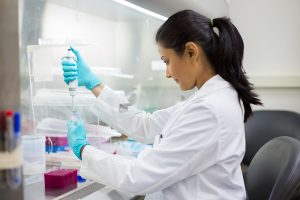A new publication claims that cancer can be random. They found that 66% of all cancers occur spontaneously as mistakes in the DNA when cells are dividing .
The Hopkins researchers found further that 29% of cancers are due to environmental factors and 5% occur due to genetic disposition.
Another research group found that 42% of cancers are preventable, meaning they arose out of the environment.
Yet another research group again states that only 10% to 30% of cancers occur randomly, not 66%.
When you take into consideration that there are overlaps between environmental factors and random DNA mistakes, it may well be that about 40% of cancers are from the environment, 5% are due to genetic disposition and 55% would be from random DNA mistakes.
The difficulties become evident when you look at details
With lung cancer, for instance 65% of lung cancers have developed randomly, but quitting smoking can prevent 89% of lung cancer. In many cases of cancer it takes several mutations before cancer develops.
The first two mutations may occur randomly, but carcinogens in the environment cause the third one. The cancer can is preventable when the carcinogen is removed from the environment.
There are other factors in cancer development that scientists of the above-mentioned studies ignored, according to critics. Environmental factors may have an even more important role to play in prevention. Whether malignant cells form and a dangerous cancer develops depends on other factors: how much inflammation is in the body, and how high is the insulin level. Other factors are whether or not obesity is present and in what state the immune system is in. Those factors won’t show up in genomic analyses that the Hopkins researchers did. And yet, these other factors like lifestyle issues and environmental factors can determine whether a patient with cancer lives or dies.
What causes cancer?
The discussion about what causes cancer continues. There seems agreement that genetic factors amount to only about 5% for most of the cancers. The discussion of scientist centers around the question whether environmental factors contribute to cancer causation 29% or 40%. The other question is whether random mutations that lead to cancer occur in 66% or in 55% of all cases. Another research group thinks only 10% to 30% of cancers occur randomly. Still, it is important to recognize that cancer can be random.
But all these numbers may not matter when the following is factored in as well. The strength of the immune system, the insulin level, obesity and the degree of chronic inflammation are also important. All factors have to be taken into consideration for a clearer picture.







